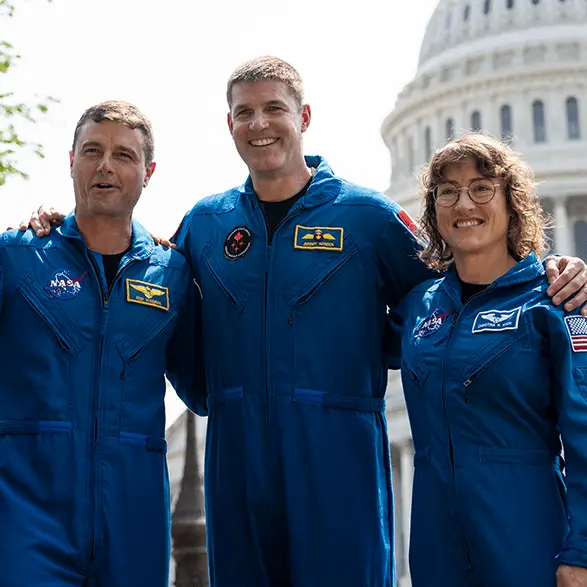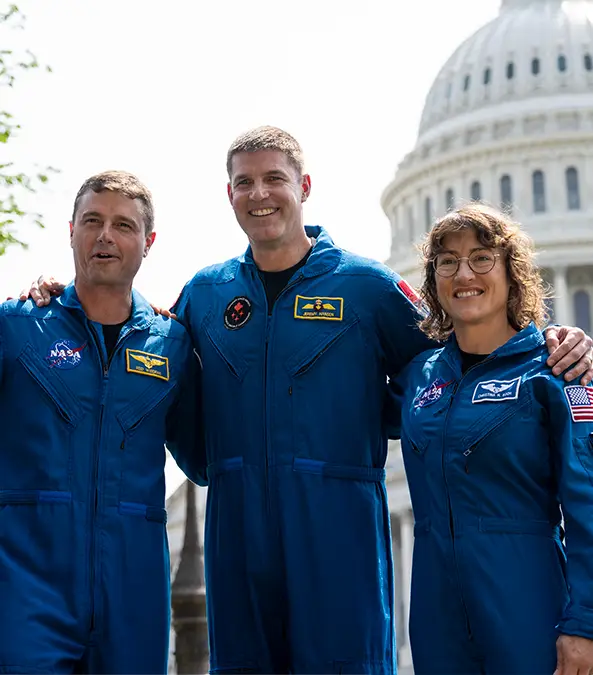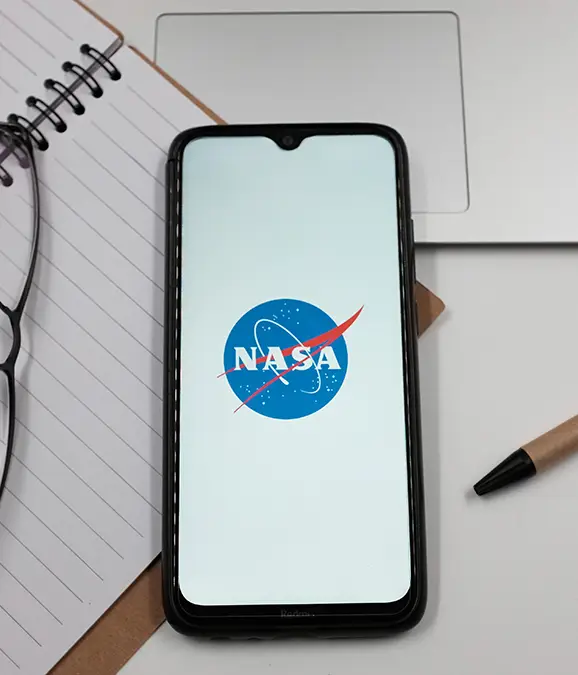
NASA's Orion space capsule is about to take astronauts farther into space than anyone has ever gone before.
Mission commander Reid Wiseman, pilot Victor Glover and fellow astronauts Jeremy Hansen and Christina Koch are all preparing for a journey that will have their capsule hurtling towards the moon at thousands of feet per second.
"When we leave planet Earth, we're zero miles an hour and when we hit low-Earth orbit, we're doing 17,000 miles an hour," Wiseman said. "And then when we come back into the atmosphere we're doing 39 times the speed of sound, 25,000 miles per hour."
The capsule is anything by spacious. It measures only 12 feet across the inside and is less than 5 feet tall.
Advert

"It's a lot bigger in 3D, when you can float around," mission specialist Christina Koch said. "That's what I'm telling myself."
Over 10 days, the crew will travel towards the moon, 'swing around its orbit and slingshot back to Earth,' according to NPR.
The mission is the second phase of the US space agency's Artemis program. Phase I sent the uncrewed Orion capsule on a similar path.
Now, Phase II will take astronauts along the path with important equipment.
The final Phase III is to land astronauts back on the moon by the year 2026.
"The goal is not just to go back to the moon," NASA administrator Bill Nelson previously explained to NPR. "The goal is to go to the moon to learn so we can go farther to Mars and beyond."
He added: "Now it so happens that we're going to go to a different part of the moon.

"We'll go into the South Pole, and that is attractive because we know there's ice there in the crevices of the rocks in the constant shadow or darkness. And if in fact there is water, then we [can create hydrogen] rocket fuel."
The crew has been training since April 2023, spending hours in a mock-up of the capsule. In the virtual environment, the astronauts can practice the rocket burns and docking manoeuvres for the mission and learn how to live in tight quarters together.
"We'll just have to trust each other," Wiseman commented.
Eventually, NASA plans to go all out by building a moon-orbiting space station.
But, for now, the space agency's focus is to send a crew of first-timers across an entirely new path and bring them back to Earth safely.